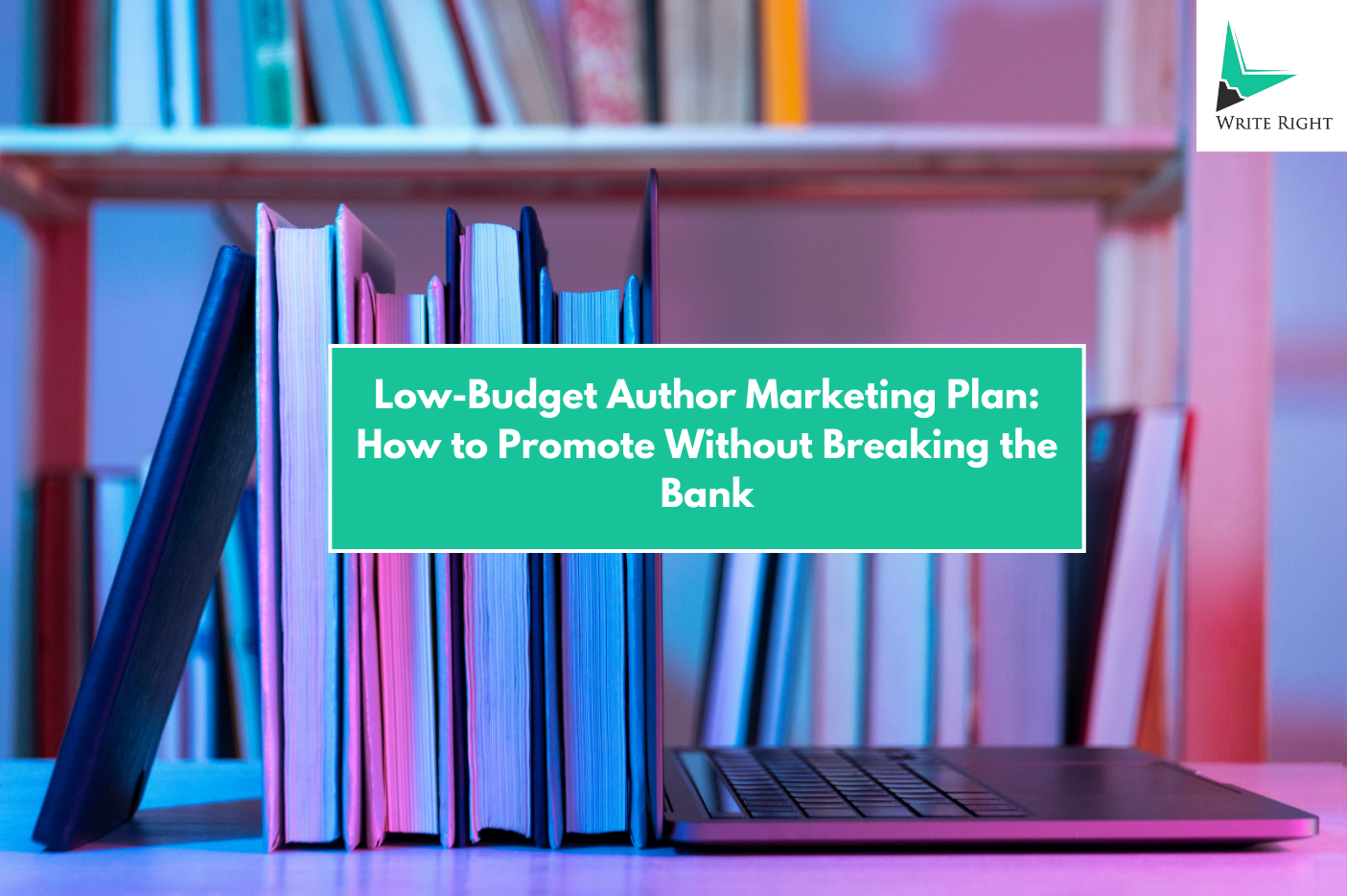You’ve written a book. That’s the hard part… or so you thought. Now comes the question every author faces:
“How do I actually get people to read this?”
For many new authors, the next thought is:
“I can’t afford a huge marketing campaign.”
Here’s the truth: you don’t need one.
The internet has leveled the playing field for writers. Today, an author with $50 in their marketing budget and a smart strategy can compete with big publishing houses that spend thousands. The secret isn’t in how much you spend—it’s in how well you use your time, tools, and creativity.
Think of J.K. Rowling’s grassroots school visits, or how Andy Weir’s The Martian started as free chapters on a website. These success stories weren’t born from huge budgets, but from persistence and clever promotion.
This guide gives you 17 practical, low-cost marketing ideas—backed by examples, tools, and easy-to-follow steps—so you can promote your book without emptying your bank account. And if you want expert help to craft a lean yet powerful plan, Write Right specializes in affordable book marketing that gets results.
1. Optimize Your Amazon Author Page Like a Storefront
Your Amazon Author Page is often the first place readers check after seeing your book. If it’s empty or outdated, you lose credibility instantly.
Steps to optimize:
-
Upload a professional, friendly headshot (even a good phone photo works if lit well).
-
Write a bio that shows personality and mentions your genre.
-
Link your blog, social media, or personal website.
-
Add all your books so readers can see your full catalog.
Example: Author Colleen Hoover uses her bio to share fun personal tidbits alongside her professional achievements. This builds connection and trust.
2. Focus on 1–2 Social Media Platforms Only
Trying to master every platform spreads you too thin. Instead, choose where your readers hang out most.
-
Romance or YA fiction? Instagram and TikTok (“BookTok” has huge influence on sales).
-
Business or nonfiction? LinkedIn and Twitter (X).
Free tools to help:
-
Canva – for branded graphics and quotes from your book.
-
Buffer or Later – for scheduling posts.
Pro Tip: Spend 15 minutes a day engaging (liking, commenting, answering questions) instead of just posting. Social media is a conversation, not a billboard.
3. Build an Email List from Day One
Your mailing list is the only audience you fully own. Unlike social media, no algorithm will hide your updates.
How to start free:
-
Offer a free chapter or bonus scene as an incentive.
-
Use free tiers of MailerLite or Mailchimp.
-
Promote the signup link in your social media bios and Amazon author page.
Example: Mystery author C.L. Taylor uses her mailing list to give subscribers early peeks at covers and plots—making them feel like insiders.
Write Right often helps authors design simple but high-converting lead magnets to grow email lists quickly.
4. Join Book Communities and Forums
Goodreads, Facebook book clubs, Reddit’s r/books or r/selfpublish are great for building relationships with readers.
Golden rule: Engage first, promote second. Share insights, answer questions, and give recommendations. People trust authors who are part of the community, not just selling to it.
5. Use Free PR Channels
Sign up for Help a Reporter Out (HARO) or Qwoted to respond to journalist requests. If you’re quoted, you get exposure and a backlink to your site or book.
Example: A self-help author landed a feature in The Huffington Post through HARO—completely free.
6. Guest Blogging for Niche Audiences
Instead of aiming for huge sites, write for smaller blogs with highly engaged readers in your niche.
Example: A sci-fi author might guest post on a space exploration blog about how real science inspired their world-building.
7. Host a Virtual Book Launch
Skip the expensive physical launch. Use Zoom, Instagram Live, or Facebook Live to:
-
Read an excerpt.
-
Answer audience questions.
-
Share behind-the-scenes stories.
Pro Tip: Partner with another author to share audiences.
Write Right helps authors plan engaging, interactive online launches that feel special without the high cost.
8. Collaborate with Other Authors
Do joint giveaways or bundle your books. Cross-promoting helps you tap into each other’s readers without spending a dime.
Example: Three romance authors bundled novellas together, split promo duties, and all gained new fans.
9. Make a DIY Book Trailer
Use free stock video from Pexels or Pixabay, add text overlays in Canva, and pair with royalty-free music from Bensound. Post it on YouTube, Instagram, and TikTok.
10. Run Timed Kindle Discounts
A $0.99 or free Kindle promo can spike your visibility. Pair it with a social media blitz and ask friends to share.
Pro Tip: Schedule it during relevant holidays or events for extra attention.
11. Approach Local Media
Local papers, radio stations, and community blogs love “local author” stories. Pitch them with a personal hook—why you wrote the book, or how it connects to your community.
12. Repurpose Your Book Content
Turn key points into LinkedIn articles, character backstories into short blog posts, or quotes into shareable social graphics. One book can produce dozens of content pieces.
13. Experiment with Low-Budget Amazon Ads
Start with $1–$2/day campaigns to test keywords and audiences. Review the analytics weekly to see which ones give you the best cost-per-click.
14. Collect Reviews Strategically
Don’t just hope for reviews—ask for them. Include a short note at the end of your book, and follow up with your mailing list after a launch.
Write Right helps authors create gentle, automated review request templates that work.
15. Submit to Free Book Promotion Sites
Places like Freebooksy, BookBub’s free section, and BookSends can list your book for free and reach thousands of readers.
16. Offer Extra Value Beyond the Book
Nonfiction authors can create a free checklist or mini-course. Fiction authors might share deleted scenes or playlists that inspired the story. This deepens engagement without extra cost.
17. Stay Consistent—Even When It’s Slow
Marketing is a marathon, not a sprint. Posting regularly, showing up in communities, and staying visible matter more than one big burst of promotion.
Example: An author who posted a single quote from their book every day on Twitter slowly built 5,000 followers—without spending a cent.
Conclusion
You don’t need a big budget to make a big impact. You just need creativity, persistence, and a willingness to try new things. The best marketing is about connection, not cash—something history’s greatest authors knew well.
And if you want to turn these DIY strategies into a tailored, results-driven plan, Write Right can help you create a budget-friendly author marketing plan that works with your resources, not against them. Because every book deserves a chance to be discovered.




